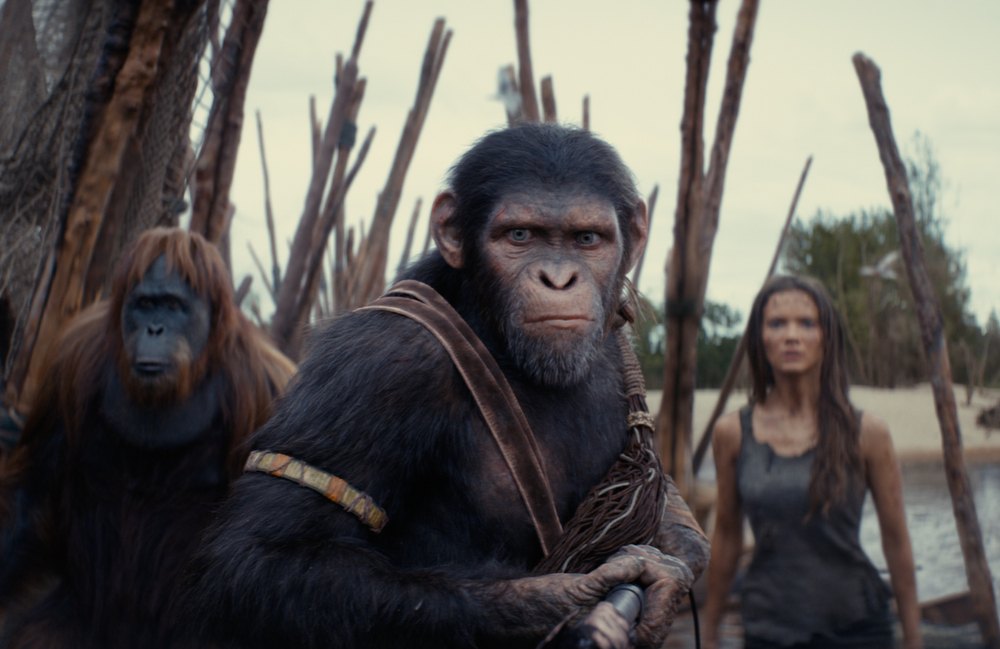Kingdom of the Planet of the Apes

Peter Macon, Owen Teague, and Freya Allan star in KINGDOM OF THE PLANET OF THE APES. (Photo: 20th Century Studios)
Following a sufficient narrative resolution to its forerunning trilogy, Kingdom of the Planet of the Apes is forced to chart fresh territory with an entry designed to fulfill the financial, rather than the creative, obligations of the franchise.
Inferior in almost every way, this superfluous new chapter is a visually stunning and occasionally thrilling science-fiction adventure, yet lacks the same potency in the underlying subtext as its predecessors. It’s more noteworthy for spectacle than substance.
An extended opening sequence establishes this sequel’s place within the mythology. It’s set hundreds of years after its predecessor, with the legacy of genetically engineered simian leader Caesar still influential generations later.
From there, it becomes the origin story of a new hero during a time when apes rule the planet while humans have faded into the background from disease and destruction. Noa (Owen Teague) is a mischievous chimpanzee whose climbing skills enables him to evade capture during an attack on his village by masked apes on horseback.
Afterward, Noa vows to his deceased father to find the rest of his family and bring them home. Uncertain who he can trust, he’s prompted to venture into the unknown to confront his past and chart his own future.
He meets a wise orangutan (Peter Macon) who educates him in the teachings of Caesar, and a timid human girl (Freya Allan) foraging for food. Together, they must infiltrate a remote colony led by the autocratic Proximus Caesar (Kevin Durand), looking to steal secrets and treasures humans left behind.
As directed by Wes Ball (The Maze Runner), the film is technically stunning, with sweeping landscapes, elaborate creature designs (animated through motion-capture technology), and seamless visual effects. Along the way, there are some thrilling chases and confrontations.
The entire series has taken some evolutionary liberties, of course, in depicting the anthropomorphic primates. The screenplay by Josh Friedman (The Black Dahlia) builds emotional depth through a compassionate message of acceptance and peaceful coexistence.
However, this installment is hampered by a muddled allegorical undercurrent — reflecting familiar themes of colonial oppression and imperialist regimes — as the final act funnels toward a high-stakes showdown for survival of the fittest.
Worse yet, as it opts for an unearned cliffhanger rather than a satisfying conclusion, Kingdom of the Planet of the Apes feels like merely a bridge or a link in the chain. Caesar would not have approved.
Rated PG-13, 145 minutes.